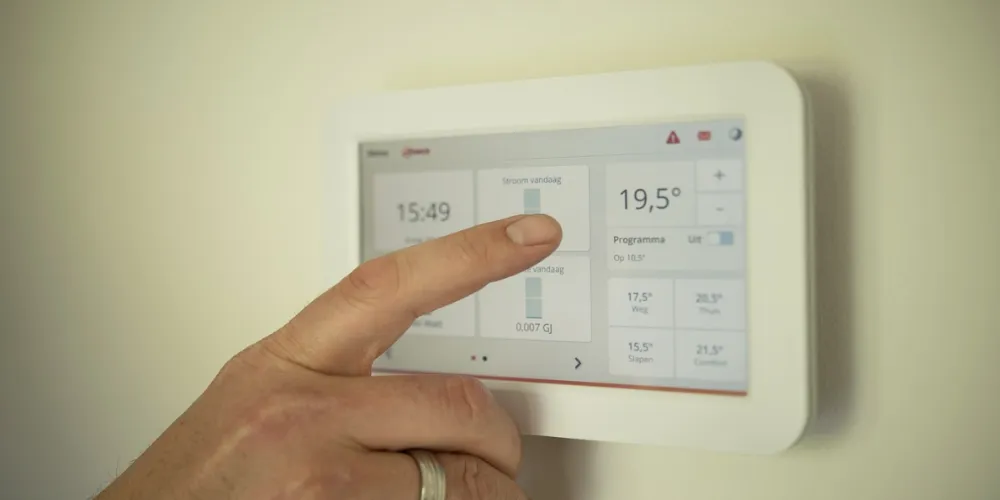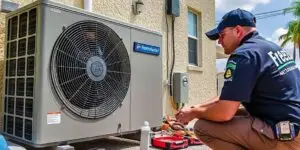Heating Miami: Essential Tips for Comfort and Efficiency
Heating Miami is often overlooked due to its warm climate. However, effective heating systems are essential for maintaining comfort during the cooler months. Understanding different types of heating systems, their installation, and maintenance is crucial. This article will explore the various aspects of heating in Miami, ensuring homeowners are informed and prepared.
The Importance of Heating Miami
Heating systems play a crucial role in the overall comfort of homes, even in a warm climate like Miami. While the region is known for its tropical weather, the winter months can bring unexpected temperature drops. This can create situations where effective heating becomes essential for maintaining a cozy environment.
In Miami, investing in a reliable heating system is not just about dealing with occasional cold spells; it contributes significantly to the quality of life. Proper heating ensures that residents can comfortably enjoy their indoor spaces, regardless of the weather outside. Additionally, a well-functioning heating system can enhance the overall energy efficiency of a home, positively impacting utility bills.
Some notable aspects of heating systems in Miami include:
- Temperature Regulation: Effective heating helps in managing indoor temperatures, creating a pleasant atmosphere during winter.
- Health Benefits: A comfortable environment can help prevent health issues associated with extreme cold, especially for vulnerable populations like the elderly.
- Home Value: Homes equipped with efficient heating systems tend to have higher market value and appeal to potential buyers.
Understanding the importance of heating in such a climate encourages homeowners to be proactive about their heating solutions. Regular maintenance and timely upgrades can ensure that heating systems operate optimally, providing peace of mind during colder periods.
Types of Heating Systems
Understanding the different types of heating systems is essential for homeowners in Miami. Each system has its unique functions, benefits, and drawbacks, which can significantly impact comfort and energy efficiency.
Forced Air Heating
Forced air heating is one of the most prevalent heating methods. This system utilizes a furnace that heats air and distributes it throughout the home via ductwork. It can be powered by electricity, natural gas, or propane, depending on the home’s infrastructure.
- Benefits:
- Rapid heating of interior spaces.
- Ability to filter air, improving indoor air quality when equipped with high-quality filters.
- Flexibility to add air conditioning systems in the same ducts.
- Drawbacks:
- Requires regular maintenance to ensure efficiency.
- Ducts can be a source of energy loss if not properly insulated.
- Can circulate dust and allergens if filters are not changed regularly.
Radiator Heating
Radiator heating systems, also known as hydronic heating, circulate hot water through pipes to radiators installed in various rooms. This method provides a consistent and comfortable source of heat.
- Benefits:
- Offers uniform heating and a cozy atmosphere.
- Quiet operation, without the noise of forced air systems.
- Lower energy costs compared to some forced air systems when maintained properly.
- Drawbacks:
- Slower to heat up a space compared to forced air systems.
- Space-consuming installations can limit design flexibility in rooms.
- Requires the water temperature to be maintained, which may involve more complexity.
Heat Pumps
Heat pumps are versatile systems that provide both heating and cooling. They extract heat from the outside air and transfer it indoors during colder months, and vice versa for cooling in the summer.
- Benefits:
- Highly energy-efficient, reducing utility bills.
- Environmental impact is lower compared to fossil fuel systems.
- Can operate effectively even in moderate winter conditions.
- Drawbacks:
- Effectiveness decreases in extremely cold temperatures.
- Upfront installation costs can be higher than traditional heating systems.
- Regular maintenance is necessary to ensure optimal performance.
Hybrid HVAC Systems
Hybrid HVAC systems combine heat pumps with traditional heating systems, allowing for more efficient operation based on the season. This adaptability makes these systems particularly suited for changing climates.
- Benefits:
- Automatically switches between electric heat pumps and gas furnaces for optimal efficiency.
- Improves comfort levels by providing tailored heating solutions.
- Can significantly reduce energy consumption depending on the outside temperature.
- Drawbacks:
- Higher upfront costs associated with installation.
- Requires more complex maintenance compared to a single heating system.
- Compatibility issues if existing systems are outdated.
Heating and Cooling Needs in Miami
Understanding the unique heating and cooling requirements in Miami is crucial for homeowners. The tropical climate presents distinct seasonal demands that necessitate effective solutions for maintaining comfort year-round.
Seasonal Demands
Miami’s climate is characterized by hot, humid summers and mild winters. While the need for heating may seem minimal, there are times when temperatures drop, making an efficient heating system essential.
- Summer Considerations:During the sweltering summer months, cooling systems take precedence. Air conditioning units are critical to combat the heat, but home owners should remain aware of the need for supplementary heating during unexpected cold snaps.
- Winter Requirements:Although winters are generally mild, temperatures can occasionally dip into the 50s. This can lead to discomfort if the home lacks adequate heating. A well-maintained system ensures quick adjustments to temperature changes.
Balancing Heating and Cooling
The challenge in Miami lies in effectively balancing heating and cooling needs. This balance is vital not only for comfort but also for energy efficiency.
- Integrated Systems:Many homeowners opt for hybrid HVAC systems that seamlessly switch between heating and cooling, depending on the requirements of the season. These systems maximize comfort and minimize energy costs.
- Energy Efficiency:Using programmable thermostats can help maintain an optimal balance. They allow homeowners to set different temperatures for various times of the day, ensuring energy is not wasted during periods when the home is unoccupied.
- Humidity Control:Maintaining appropriate humidity levels is essential in Miami’s climate. Effective heating systems in conjunction with cooling solutions help regulate humidity, promoting a more comfortable indoor environment.
Installation of Heating Systems
Installing a heating system is a critical step in ensuring home comfort during the cooler months. Understanding the options available and the installation process is essential for homeowners in Miami.
Choosing the Right System
Selecting the appropriate heating system for a home involves considering several factors. Homeowners should evaluate the size of their space, the existing infrastructure, and their specific heating needs. Common heating systems include:
- Forced Air Systems
- Radiator Heating
- Heat Pumps
- Hybrid HVAC Systems
Each system has its advantages and disadvantages, making it essential to assess which option aligns best with energy efficiency and comfort requirements.
Professional Installation Process
Proper installation is key to ensuring the efficiency and longevity of a heating system. Professional services ensure that the system is set up correctly, which can prevent future issues and maximize performance.
Initial Assessment
Before installation, an initial assessment is performed by HVAC professionals. This step includes evaluating the following:
- Home Size and Layout: Understanding the square footage and design helps determine the appropriate system capacity.
- Existing Ductwork: For forced air systems, existing duct conditions are examined to ensure they are adequate and functional.
- Insulation Quality: Assessing insulation levels affects the efficiency of the heating system.
- Local Climate Considerations: Climate plays a significant role in the type of heating system best suited for the area.
Installation Steps
The installation process typically follows a comprehensive set of steps to ensure everything is in order:
- Preparation of the Site: The installation team prepares the area by clearing any obstructions and ensuring safe access.
- System Placement: The heating unit is positioned according to manufacturer specifications and local building codes.
- Connecting Ductwork or Pipes: For forced air and radiator systems, connecting to existing ductwork or piping is crucial.
- Electrical Connections: Proper connections to power sources are established, with a focus on safety and efficiency.
- Testing and Calibration: After installation, thorough testing of the system is conducted to ensure operational efficiency and comfort levels.
Complete documentation and guidance on operating the new system are provided to homeowners, ensuring they have the necessary knowledge to maintain optimal performance.
Maintenance of Heating Systems
Proper maintenance of heating systems is crucial for ensuring optimal performance and longevity. Regular check-ups and seasonal preparations help in avoiding unexpected breakdowns and promote energy efficiency.
Regular Tune-Ups
Regular tune-ups play a significant role in maintaining heating systems. They not only enhance efficiency but also prolong the life of the equipment. During a tune-up, HVAC professionals assess various components and perform necessary adjustments. Key tasks involved include:
- Inspecting and cleaning of burners and heat exchangers.
- Checking and calibrating thermostat settings.
- Ensuring all electrical connections are secure.
- Testing the system’s airflow and inspecting fans.
- Replacing or cleaning air filters to improve air quality.
These tasks can help prevent costly repairs in the future and ensure the heating system operates at peak efficiency.
Seasonal Maintenance
Seasonal maintenance is essential for adapting the heating system’s operations according to changing weather conditions. Both pre-summer and pre-winter preparations ensure the system is responsive and effective when needed most.
Summer Prep
As summer approaches, preparing the heating system for the off-season is vital. This includes:
- Turning off the heating system and switching to cooling mode.
- Cleaning air ducts to remove dust and allergen buildup.
- Inspecting the insulation of ducts for any wear and tear.
- Scheduling maintenance for cooling systems, ensuring both heating and cooling equipment are in prime condition.
Effective summer prep will lead to enhanced overall efficiency and prevent any surprises during the cooler months.
Winter Readiness
Preparing the heating system for winter is equally paramount. Proactive steps include:
- Checking the thermostat settings to ensure proper function.
- Inspecting the heating elements for any signs of wear or damage.
- Testing the system’s ignition and burners to ensure they operate smoothly.
- Scheduling a professional evaluation and tune-up to identify potential issues before they become serious.
Proper winter readiness will enhance safety and efficiency, allowing for consistent warmth during the colder months.
Efficient repairs and emergency services are essential for maintaining the functionality of heating systems, especially during unexpected breakdowns. Understanding common heating issues and knowing how to find reliable repair services can make a significant difference in ensuring comfort at home.
Repairs and Emergency Services
Common Heating Issues
Heating systems can encounter a variety of problems that may require immediate attention. Recognizing these issues early can prevent further damage and costly repairs. Some common heating problems include:
- No heat or insufficient heat
- Strange noises coming from the heater
- Frequent cycling on and off
- Increased energy bills without a clear explanation
- Uneven heating throughout the home
These issues can stem from various causes, including thermostat malfunctions, duct leaks, or wear and tear on the system. It is crucial to diagnose and address these problems promptly.
Finding Reliable Repair Services
When heating issues arise, finding a trustworthy repair service is vital. A reliable HVAC technician can assess the situation and provide effective repairs to restore your heating system. Here are key considerations for finding reputable repair services:
What to Look For
- Licensing and Certifications: Ensure that the service provider is fully licensed and has the necessary certifications to perform heating repairs.
- Experience: Look for companies with a proven track record in the industry, as experienced technicians are more likely to diagnose and fix issues effectively.
- Customer Reviews: Check testimonials and reviews from previous customers to gauge the quality of service and customer satisfaction.
- Transparent Pricing: Reliable companies provide clear estimates and explain the costs involved in the repair process upfront.
- Emergency Services: Choose a provider that offers 24/7 emergency repair services to address urgent heating problems.
Response Time
Response time is a crucial factor when dealing with heating repairs. Systems can fail unexpectedly, and the colder months can exacerbate the situation. An efficient repair service should guarantee prompt responses to calls for assistance. Key points to evaluate include:
- Availability: Determine if the company operates outside of regular business hours for emergencies.
- Estimated Arrival Times: Ask about the typical response time for repair calls to ensure you won’t be left without heat for long periods.
- Prioritization of Emergency Calls: A reputable service will prioritize emergency requests, especially during peak heating seasons.
Being informed about these factors will aid homeowners in making educated decisions regarding heating repairs. Taking proactive measures and securing reliable service can ensure that any heating issues are addressed quickly and effectively.
Energy Efficiency and Cost Savings
Energy efficiency plays a critical role in enhancing comfort and reducing expenses associated with heating systems. Implementing efficient heating solutions and adopting mindful energy practices can lead to significant cost savings over time.
Efficient Heating Solutions
Investing in efficient heating solutions is crucial for minimizing energy consumption and reducing utility bills. Various systems and technologies can optimize heating performance:
- High-Efficiency FurnacesHigh-efficiency furnaces utilize advanced technology to maximize heat output while minimizing energy use. Systems with annual fuel utilization efficiency (AFUE) ratings of 90% or higher are regarded as high efficiency, converting most fuel into usable heat.
- Heat PumpsHeat pumps are versatile systems that can both heat and cool a space. They transfer heat from the outside air or ground into the home, ensuring energy-efficient climate control throughout the year.
- Smart ThermostatsSmart thermostats allow for precise control over indoor climates, adjusting settings based on occupancy and preferences. These devices can lead to significant energy savings by optimizing heater operation and usage patterns.
- Zone HeatingZone heating enables targeted heating in specific areas of a home. This approach ensures that energy is not wasted on unoccupied spaces, resulting in lower heating costs.
Tips to Save Energy
Implementing simple strategies can contribute to energy savings without compromising comfort levels. Consider the following practices:
- Regular MaintenanceScheduling regular maintenance for heating systems ensures optimal performance. Annual check-ups can identify issues early, improving efficiency and extending the lifespan of equipment.
- Seal and InsulateProperly sealing windows and doors, along with adequate insulation, can prevent heat loss. Ensuring that the building envelope is well-insulated minimizes the workload on heating systems.
- Utilize Natural HeatTaking advantage of natural sunlight by opening curtains during the day can provide free heat. On cooler days, strategic use of sunlight can reduce reliance on heating systems.
- Adjust Temperature SettingsLowering the thermostat by a few degrees during colder months can lead to noticeable savings. A comfortable setting during the day, paired with cooler temperatures at night, can effectively cut heating costs.
- Educate Household MembersInforming all household members about energy-efficient practices encourages collective efforts to reduce energy consumption. Simple actions, such as turning off heaters in unused rooms, can contribute to overall savings.
Indoor Air Quality and Heating
Maintaining indoor air quality is essential for a comfortable living environment. It significantly impacts health and overall well-being, especially during the heating season. Understanding the roles of air filters, humidifiers, dehumidifiers, and air purification systems is crucial for enhancing indoor air quality.
Air Filters
Air filters are a critical component of any heating system. They trap dust, allergens, and other particles, preventing them from circulating in the living spaces. A clean air filter not only improves air quality but also enhances the efficiency of the heating system.
- Types of Air Filters: There are various types of air filters, including:
- HEPA Filters: Highly efficient in trapping small particles.
- Fiberglass Filters: Affordable but less efficient in filtration.
- Electrostatic Filters: Captures more dust and allergens through static charge.
- Changing Frequency: Regularly changing air filters is essential. Depending on usage, filters should be changed every 1 to 3 months to ensure optimal performance.
- Impact on Heating System: Clean filters reduce the strain on heating systems, prolonging their lifespan and improving energy efficiency.
Humidifiers and Dehumidifiers
Humidity levels play a significant role in indoor comfort, especially in Miami’s humid climate. Proper humidity control can enhance the effectiveness of heating systems.
- Humidifiers: These devices add moisture to the air, which can help alleviate dry skin and respiratory problems during the winter months.
- Types of Humidifiers:
- Evaporative Humidifiers: Use a fan to evaporate moisture into the air.
- Steam Vaporizers: Boil water to produce steam for humidification.
- Ultrasonic Humidifiers: Utilize ultrasonic vibrations to create a fine mist.
- Types of Humidifiers:
- Dehumidifiers: These systems remove excess moisture from the air, helping to prevent mold growth and reduce allergens.
- Benefits of Dehumidifiers:
- Preventing mold and mildew growth, protecting both health and home.
- Improving overall comfort by reducing humidity levels.
- Benefits of Dehumidifiers:
Air Purification Systems
Air purification systems enhance indoor air quality by removing contaminants such as bacteria, viruses, and volatile organic compounds (VOCs). These systems are especially beneficial in households with allergies or respiratory issues.
- Types of Air Purification Systems:
- Activated Carbon Filters: Excellent for removing odors and toxins.
- UV Light Air Purifiers: Kill bacteria and viruses through ultraviolet light exposure.
- Ionizers: Emit negatively charged ions to attract and neutralize pollutants.
- Integration with HVAC Systems: Many air purifiers can be integrated into existing HVAC systems, providing whole-home purification without the need for additional equipment.
- Health Benefits: Improved air quality can lead to reduced allergic reactions, less respiratory illness, and a generally healthier living environment.
Innovative Technologies in Heating
As technology evolves, heating systems have become more efficient and user-friendly. Embracing these innovative solutions can lead to increased comfort and significant energy savings in homes.
Smart Thermostats
Smart thermostats represent a significant advancement in heating technology. These devices allow homeowners to control their heating systems remotely via smartphones or computers. They are designed to learn the household’s heating preferences over time, adjusting temperatures automatically for optimal comfort and efficiency.
Key benefits of smart thermostats include:
- Energy Savings: By optimizing heating schedules, these devices can help reduce energy consumption, leading to lower utility bills.
- Remote Access: Users can manage their heating systems from anywhere, providing convenience and flexibility.
- Integrations: Many smart thermostats can be integrated with other smart home systems, enhancing overall home automation.
Eco-Friendly Heating Options
In an increasingly environmentally conscious world, eco-friendly heating options are gaining traction. These systems minimize the carbon footprint while providing effective heating solutions.
Solar Heating
Solar heating uses solar panels to capture sunlight and convert it into thermal energy for heating. This technology can be particularly effective in sunny regions, allowing homeowners to harness renewable energy for their heating needs. The benefits of solar heating include:
- Reduced Energy Costs: By using the sun’s energy, homeowners can significantly lower their heating bills.
- Low Environmental Impact: Solar heating is a clean and sustainable option that reduces reliance on fossil fuels.
- Energy Independence: Homeowners can become less dependent on traditional energy sources, enhancing their energy security.
Geothermal Systems
Geothermal heating systems utilize the earth’s constant temperature to provide efficient heating. These systems transfer heat from the ground into homes. The advantages of geothermal systems are notable:
- High Efficiency: They can achieve efficiency rates of up to 400%, providing more energy than they consume.
- Longevity: Geothermal systems have a long lifespan, often lasting over 25 years with proper maintenance.
- Eco-Friendly: This approach significantly reduces greenhouse gas emissions, contributing to a more sustainable environment.
Commercial Heating Solutions
In the dynamic environments of businesses, efficient heating solutions are essential. With varying requirements across industries, commercial heating systems must be tailored to meet specific needs.
HVAC Systems for Businesses
Businesses require robust HVAC systems that can handle not only heating but also ventilation and air conditioning. These systems are designed to ensure comfort for employees and clients alike, maintaining a productive atmosphere.
- Types of HVAC SystemsBusinesses can choose from a variety of HVAC systems, including:
- Rooftop Units (RTUs) – Convenient and space-saving, these units can be placed on the roof, minimizing the footprint.
- Split Systems – These systems separate the indoor and outdoor components, allowing for greater flexibility in design and installation.
- Variable Refrigerant Flow (VRF) Systems – Highly efficient systems that allow for individual control of different areas within a building.
- Capacity ConsiderationsWhen selecting an HVAC system, it is crucial to determine the capacity needed to effectively heat the space. Factors influencing capacity include:
- The size of the business premises.
- The insulation quality of the building.
- The number of occupants and equipment generating heat.
Customized Heating Solutions
Each business has unique heating requirements based on its size, industry, and operational hours. Customized solutions can enhance efficiency and performance.
- Tailored HVAC DesignWorking with experienced HVAC professionals ensures that systems are designed to fit the specific layout and needs of the business. Considerations include:
- Understanding the workflow within the space to optimize heating placement.
- Integrating zoning capabilities, allowing different areas to be heated according to variable usage.
- Energy Efficiency ConsiderationsEnergy-efficient heating solutions can significantly reduce operational costs. Strategies include:
- Implementing smart controls to manage heating schedules based on occupancy.
- Utilizing high-efficiency furnaces or heat pumps to minimize energy consumption.
- Regular maintenance routines to ensure systems operate at peak performance.
Choosing the Right HVAC Service Provider
Finding a reliable HVAC service provider is crucial for ensuring optimal performance and longevity of heating systems. Evaluating various factors can lead to a more informed decision.
Evaluating Expertise and Experience
Expertise and experience are fundamental when selecting an HVAC contractor. It’s essential to consider the following:
- Years in Business: Providers with a long-standing presence in the industry typically have established credibility.
- Certifications: Look for technicians who are certified by recognized organizations, indicating they have received proper training.
- Specialization: Certain contractors may specialize in specific types of heating systems, such as heat pumps or radiant heating.
Verifying credentials can provide confidence in the chosen service provider’s ability to handle various heating projects effectively.
Client Reviews and Reputation
The reputation of an HVAC company can significantly influence its perceived reliability. Here are key considerations:
- Online Reviews: Websites dedicated to consumer feedback can provide insights into customer satisfaction and service quality.
- Word of Mouth: Recommendations from friends and family often carry significant weight, as personal experiences tend to be trustworthy.
- Award Recognition: Companies that have received awards for service excellence demonstrate a commitment to high performance.
Assessing these factors can aid in identifying a provider known for consistent, quality service.
Guarantees and Warranties
Offers of guarantees and warranties can serve as indicators of confidence in service and product quality. Consider these aspects:
- Workmanship Guarantee: A reliable HVAC provider should offer a guarantee for their installation work, ensuring satisfaction in the service rendered.
- Manufacturer Warranties: Confirm that installed equipment comes with manufacturer warranties that cover defects and failures, providing peace of mind.
- Long-Term Service Agreements: Some providers offer contracts that include maintenance checks and repairs, adding value and reliability over time.
These assurances not only protect the investment but also reinforce trust in the HVAC service provider’s dedication to quality and customer satisfaction.





